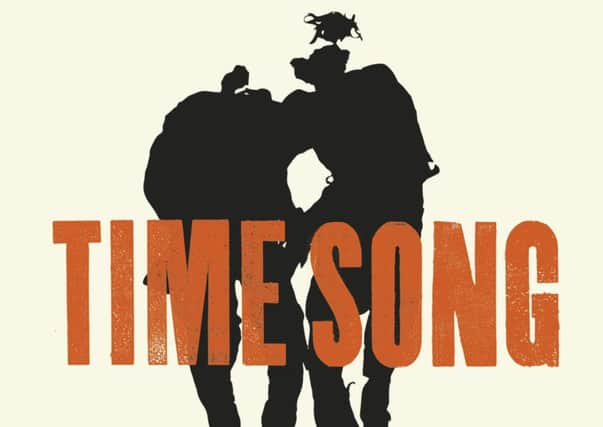Book review: Time Song - Searching for Doggerland, by Julia Blackburn


To describe Time Song as a non-fiction book about the history of Doggerland makes it sound dry and academic, but Julia Blackburn’s approach is anything but. At one point, she describes her modus operandi as “trying to learn prehistory hand to mouth as I go along” and that’s a more-or-less accurate description of what it feels like to read her writing. There is certainly no handy potted chronology of Doggerland to hang onto; instead, the author describes a series of encounters she has with some of the people who have devoted their lives to searching for traces of this long-gone landmass, from archaeologists to obsessive enthusiasts, and uses these as jumping off points to help her imagine what life must have been like in the flat, open country that once stretched all the way from East Anglia to Holland.
Among the most memorable of these meetings is one with Bob Much, a former bank manager who, forced to retire early after he developed a debilitating condition called spinal muscular atrophe, spent his time looking for signs of prehistoric human life along the shoreline near the village of Pakefield in Suffolk. His big find, in 2001, a number of worked flints cut in situ, proved that humans had lived in the area some 700,000 years ago, which made the Pakefield Flints – at the time – the earliest evidence of human habitation in Great Britain by a good 200,000 years. For Much, though, as for Blackburn, these finds were at least as significant for the way in which they fired his imagination as they were for their scientific value. “I envisaged a family group at a stream bank,” he tells Blackburn, while recounting the story of his find. “They catch a small animal and they make small tools to butcher it up and then they leave. Only a day or two, and they were gone.” Blackburn’s book is studded with similar imaginative leaps, grounded in science yet evocatively described.
Advertisement
Hide AdAdvertisement
Hide AdIn addition to her various coastal rambles with flint experts and fossil hunters (a man called Jonathan shows her the fossilised remains wolves, beavers, mammoths and rhinos, all of which used to roam Doggerland in the distant past) Blackburn also weaves into the narrative 18 “Time Songs,” in which she attempts to render what would otherwise have been reams of exposition in poetic form. Not all of them work brilliantly as poems (although one or two do), but they are all preferable to the alternative. Accompanying the Time Songs are 18 drawings by the artist Enrique Brinkmann, reminiscent of cave paintings in appearance, which seem, with their haphazard arrangement of symbols, to reach towards some sort of ancient, unknowable language.
An additional strand running through the book which subtly ties all these disparate elements together is the presence of Blackburn’s late husband, the Dutch artist Herman Makkink. As the book progresses, her quest to imagine herself closer to the ancient inhabitants of Doggerland inevitably begins to overlap with her desire to feel a connection with him. Perhaps the nearest she comes to some sort of resolution arrives in the final Time Song. It begins with the author imagining that she is writing a letter to her husband on the anniversary of his death, and concludes: “Then I would say to you / Who does not care / One way or another: / I think it’s all right, / The World will continue / Even if we have gone / And that is surely something / To smile about.”
Time Song: Searching for Doggerland, by Julia BlackburnJonathan Cape, 292pp, £25